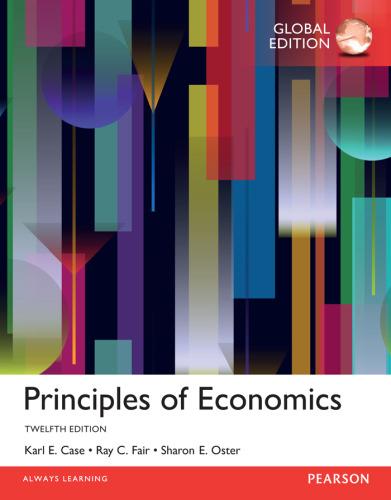1.3.4 Management and union representatives at a firm are bargaining over wages: each side can either concede...
Question:
1.3.4 Management and union representatives at a firm are bargaining over wages: each side can either concede to the other party’s demands/offers or hold out. If both concede they “split the difference” and the union gets wages of $100 for its members while the firm enjoys profits of
$5,000. If the union concedes but the firm holds out, the union gets a wage of $50 while the firm enjoys profits of
$7,000. If the union holds out but the firm concedes, the union gets a wage of $150 and the firm enjoys profits of
$4,000. Finally, if both sides hold out, a strike occurs and the two sides have $0 wages and $0 profits during the strike.
a. Use the information above to construct a payoff matrix for the union and the firm.
b. Is there a dominant strategy for the union or the firm?
Explain.
c. Based on your response to
(b) above, what is the Nash equilibrium for this game? Explain.
d. Is the strike outcome a stable one? Explain.
Step by Step Answer:

Principles Of Economics
ISBN: 9780802845610
12 Global Edition
Authors: Karl E. Case, Ray C. Fair, Sharon E. Oster






